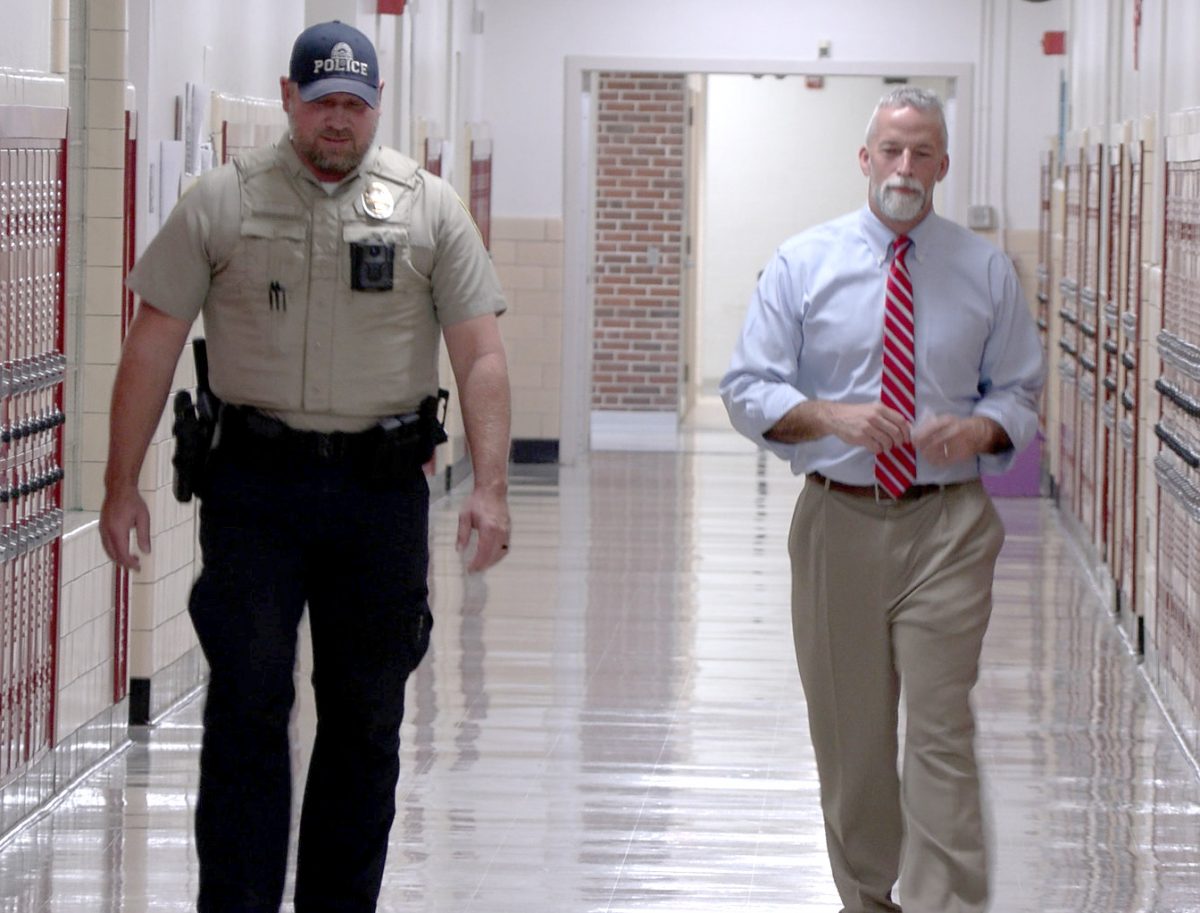After more than three years, Albemarle County Public Schools reinstated its school resource officer program on October 30. Both the district and the officer at Albemarle High School are optimistic about improving safety and community through the program, but opponents believe the return of SROs is a step in the wrong direction.
In a Q&A session following the announcement, AHS Principal Darah Bonham mentioned safety and community building as two drivers for bringing back officers. In 2020, the Albemarle School Board voted to remove SROs from county schools after nationwide protests erupted over police brutality.
Prior to being stationed at AHS, Officer Jamie Kwiecinsky worked as a SRO in Harrisonburg City Schools. He says the two schools and their communities are different, but Kwiecinsky’s previous training and experience has prepared him for the role. In addition to a required 40-hour Department of Criminal Justice Services course, the officer says he’s completed “youth mental health, first aid, … activism, [and] active shooter type trainings.”
Kwiecinsky hopes to strengthen school safety by being present and engaged at AHS. “You have to be seen, you have to be out in the hallways patrolling in and outside of … the school building, and just [have] people know that you’re there. It’s more than just coming into the school and sitting in the office all day long and not being seen,” he says. “Right now I’m working with driver’s education, trying to do some stuff with them on vehicle stops, traffic stops with law enforcement, how to act, how to properly receive an officer coming up to their vehicle, things like that, more than just inside the school safety.”
Though Kwiecinsky and others at ACPS and ACPD are optimistic about the return of the SRO program, not everyone is happy with the officers returning. Namely, the Hate-Free Schools Coalition of Albemarle County is concerned about SRO’s impact on students.
“HFSC was disappointed not only in the return of SROs, but in the process that took place implementing their return,” the group said in a statement to C-VILLE. “While safety in schools is undoubtedly important, it’s essential to consider the broader implications of police presence on students, particularly those from marginalized communities.”
In particular, Hate-Free Schools voiced concern about the negative effect police presence would have on students of color, and disabled and LGBTQ+ students. The group points to research by the American Civil Liberties Union and The Brookings Institution, which shows that, when police are in schools, there’s a disproportionate arrest of students of color. “Moreover, students are not made aware of their rights and protections against self-incrimination,” wrote HFSC. “If students are going to be questioned by police in schools, they need to be receiving education on their right to not speak without a parent or adult present. This is not happening.”
Hate-Free Schools would like to see alternative efforts taken to address safety concerns and build community. Specific options mentioned by the group include hiring additional mental health therapists, partnering with community organizations, and staff training on trauma-informed practices and conflict resolution.
